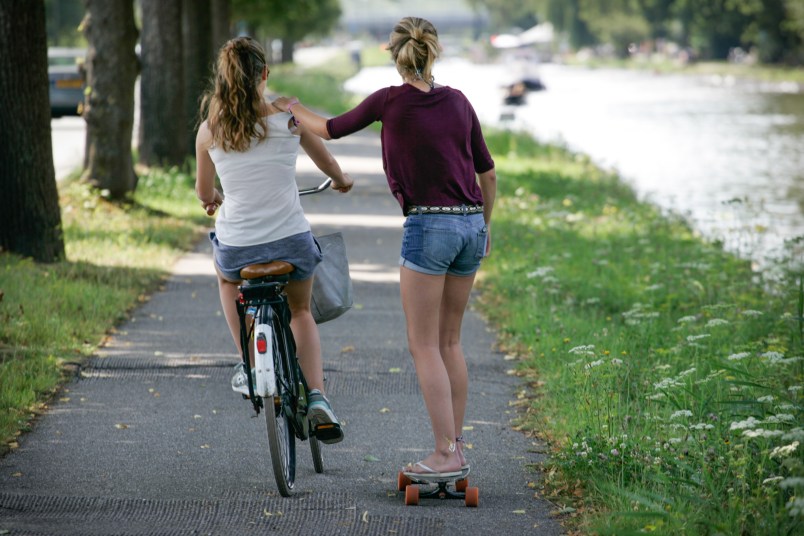About half of young Americans expect to be financially better off than their parents, according to a new poll, a sign that the dream of upward mobility is alive but somewhat tempered.
The poll, by The Associated Press-NORC Center for Public Affairs Research and MTV, found that half of 15- to 26-year-olds think they eventually will be better off than their parents in terms of household finances. About 29 percent expect to do as well as their parents, and 20 percent expect to be worse off.
Parents were slightly more optimistic: 60 percent think their children will do better than they did, a view that held true for parents across all income groups. Overall, only 12 percent of parents said that they felt their children might do worse.
It’s no longer a guarantee that children will achieve upward income mobility. About half of the Americans born in 1984 earned more at age 30 than their parents, down from 92 percent in 1940, according to the study by famed economist Raj Chetty and others that was released in 2016.
Jennifer Narvaez, 23, is among those who anticipates her financial future will be a bit brighter than that of her parents. Narvaez said she expects to have more opportunities as a college graduate to get a job and own a home than her parents, who grew up in Nicaragua and immigrated to the United States. The Miami resident holds an undergraduate degree in biology and is planning on attending medical school to become a cardiologist.
Narvaez is less certain about the prospects of the U.S. economy, particularly as the nation appears to be marching into a trade war with China.
“It’s a weird time,” she said. “I feel like it’s hard to predict what will happen because of the kind of administration we have.”
Alex Barner, 20, also felt optimistic that he might fare better than his mother, who had him at age 18 and raised him as a single mother. He is attending college in New Mexico and is considering a future career in business management.
While Barner is hopeful he will do well in life, he also has some concerns about the trajectory of the nation and its economy. Like Narvaez, he’s concerned by the trade policy of President Donald Trump’s administration.
Barner also said he feels politicians need to focus more on matters that affect people in the here and now, such as health care and student loan relief.
Respondents were divided about how they expect the nation’s economy will fare in the year ahead. About 29 percent of young people expect the economy to improve, 30 percent expect it to get worse and 41 anticipate it will stay the same.
Similarly, 35 percent of parents expect improvement, 27 percent expect conditions to get worse and 38 percent expect the economy to stay as is.
___
The Youth Political Pulse poll was conducted Aug. 23 to Sept. 10 by the AP-NORC Center and MTV. The poll was conducted using NORC’s probability-based AmeriSpeak panel, which is designed to be representative of the U.S. population. It includes 580 young people ages 15-26 and 591 parents of children in the same age group. The margin of sampling error for all young people is plus or minus 6.6 percentage points, and for parents it’s plus or minus 7.5 percentage points.
___
Online:
AP-NORC Center for Public Affairs Research: http://www.apnorc.org







I am surprised it is that high. I would guess more like 10% assuming we are talking about the 99%… maybe you would get this number among the 1%ers
It’s going to be far fewer than that thanks to Red Ink Republicans!
Republicans, climate change. I look at my kids and keep my fingers crossed.
Well, if young Americans needed another excuse to sit out voting, I guess this will do.
Wait until that half realizes their chances are even smaller and the half becomes an eighth.